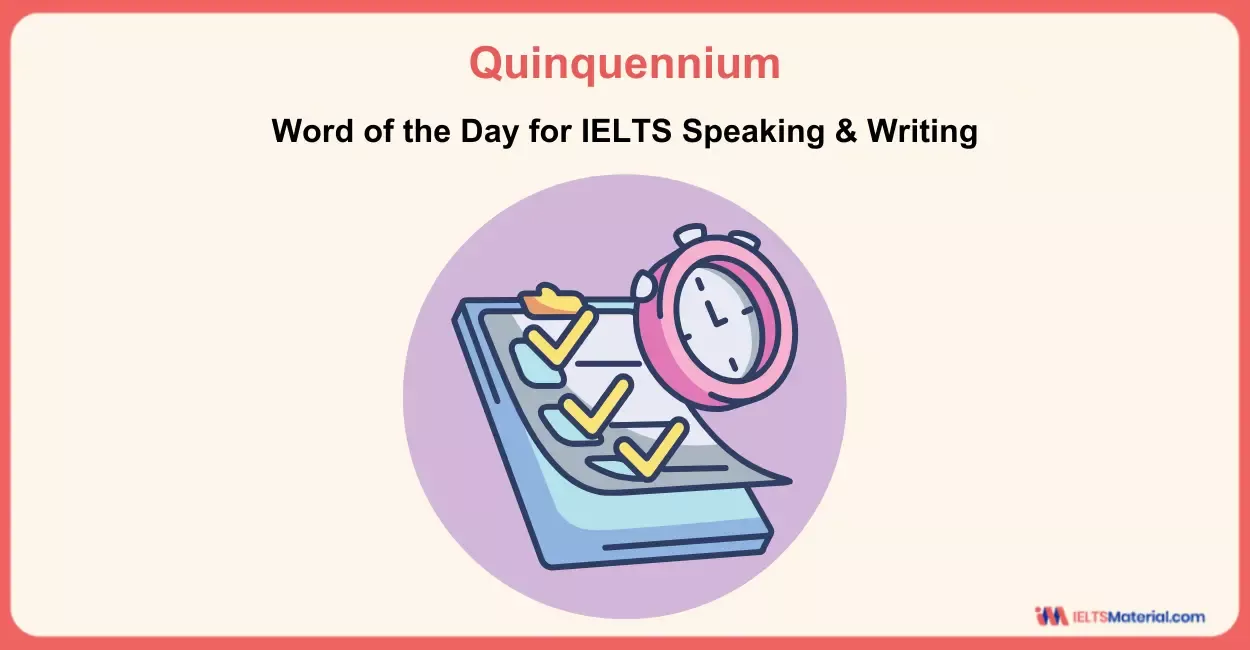IELTS Vocabulary
-
Copy link

Limited-Time Offer : Access a FREE 10-Day IELTS Study Plan!
“Enhance your IELTS vocabulary with easy strategies! Learn essential words for all sections—Listening, Reading, Writing, and Speaking—to boost your score and excel in the exam. Start building your word bank now!“
Vocabulary is the backbone of any language, much like life is essential for humans. In the IELTS Exam, vocabulary accounts for 25% of your marks in Writing and Speaking, and it significantly impacts Listening and Reading as well. A limited IELTS vocabulary can lead to repetitive language in your writing and difficulty expressing yourself during speaking tasks. Since the IELTS is an English Language Proficiency Test, dedicating time to enhancing your vocabulary is crucial for improving your overall IELTS Band Score. Invest in your vocabulary development to unlock your full potential on the IELTS!
Table of Contents[Show]
Tips to Improve IELTS Vocabulary
Following are some tips to improve your IELTS Vocabulary
- Read Widely – Explore newspapers, academic articles, and IELTS-related topics to learn new words in context.
- Create a Daily Vocabulary List – List new English words each day along with their meanings. Focus on pronunciation and practice framing sentences to reinforce understanding.
- Set a Daily Word Goal – Start with 5 new words daily and gradually increase to 50 per week for faster progress.
- Use a Vocabulary Journal – Note down new words, synonyms, and example sentences to strengthen retention.
- Practice with Flashcards – Use apps like Anki or Quizlet to regularly review and reinforce memory.
- Learn Word Families – Understand different forms of a word (e.g., "analyze," "analysis," "analytical") to expand usage.
- Focus on Commonly Used Words – Learn everyday vocabulary to improve fluency in Speaking, Listening, and Reading.
- Use New Words in Writing & Speaking – Apply new vocabulary in essays and conversations to retain them effectively.
By implementing these strategies, you can significantly boost your vocabulary and improve your overall performance in English!
Vocabulary For IELTS
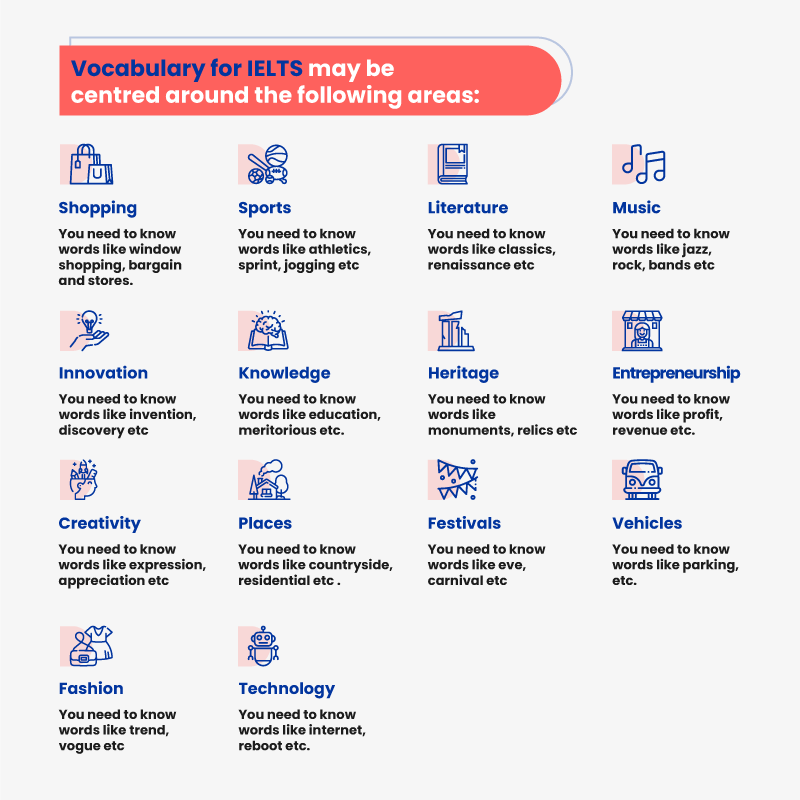
Vocabulary for IELTS may be centered around the following areas:
- Shopping
- Sports
- Literature
- Music
- Innovation
- Knowledge
- Heritage
- Entrepreneurship
- Creativity
- Places
- Festivals
- Vehicles
- Fashion
- Technology
A common misconception is that knowing difficult words alone constitutes a strong vocabulary. However, it’s essential to use words correctly in context. For example, "He had a quick lunch" is correct, while "He had a fast lunch" isn’t, as "fast" doesn’t pair well with "lunch."
To excel in vocabulary, especially for the IELTS, focus on mastering keywords relevant to specific topics. You don’t need to know every word; instead, concentrate on the right vocabulary that enhances your communication skills and improves your performance in Writing and Speaking.
Struggling with vocabulary for the IELTS? Sign up for our online class and master the words to succeed!"
Vocabulary for IELTS Listening
Ears can work wonders! They can remember what you listen to. To improve your vocabulary in the IELTS Listening, listen to podcasts, speeches, and audio from native English speakers. You'll notice a big improvement over time. Pay attention to the words native speakers use often. Want to learn English through movies? Here’s how to do it!
- Select a movie
- Watch the movie in your native language, if available.
- Watch the movie again with English subtitles or dual subtitles (English and native language)
- Select an interesting scene and use the pause button in places you find it to be too fast. Understand the scene thoroughly.
- Watch the movie many times, but each time with a difference. Try watching the movie by removing the subtitles ( both English and your native language)
- Your ears will do the magic of connecting to your memory and will make you say, what you heard often in the movie.
- You can refer to your dictionary and get to know the meanings of words you don’t know.
Vocabulary for IELTS writing
To excel in IELTS Writing, it’s crucial to focus on vocabulary tailored to both IELTS Writing Task 1 and IELTS Writing Task 2.
Writing Task 1: Academic and General
- Academic Task 1: Use precise vocabulary to describe data. Familiarize yourself with terms like "increase," "decrease," "fluctuate," and "stabilize." Practice phrases for comparing and contrasting data, such as "in comparison to" or "whereas."
- General Task 1: Focus on formal language for letter writing. Use phrases like "I am writing to express" or "I would like to request." Ensure your tone matches the context (formal or informal).
Writing Task 2: Essay Writing
- Variety and Precision: Use a range of vocabulary to express your arguments clearly. Avoid repetition by employing synonyms and varied phrases.
- Topic-Specific Terms: Familiarize yourself with vocabulary related to common topics like education, technology, and health. This helps you write more relevant and persuasive essays.
- Academic Language: Incorporate formal language and linking words (e.g., "furthermore," "however") to connect your ideas smoothly.
- Practice Contextual Use: Learn how to use new words in sentences to ensure proper context and meaning.
- Review and Revise: After writing, check your vocabulary usage and replace overused words with alternatives.
By applying these strategies across both tasks, you can significantly enhance your IELTS Writing score!
| Maps: Related vocabulary Pie-charts, Bar-graph, Line-graph: Related Vocabulary Process diagram: Related Vocabulary |
Vocabulary for IELTS Speaking
To boost your IELTS Speaking score, focus on these essential vocabulary strategies:
- Variety and Range: Use a diverse range of vocabulary to express your ideas. Incorporate synonyms to avoid repetition and showcase your language skills.
- Topic-Specific Vocabulary: Familiarize yourself with common IELTS topics, such as health, education, and environment. Knowing relevant terms can help you articulate your thoughts more effectively.
- Idiomatic Expressions: Incorporate idioms and phrases to make your speech sound more natural and fluent. Examples include "break the ice" or "hit the nail on the head."
- Pronunciation Practice: Pay attention to how native speakers pronounce words. Clear pronunciation enhances your clarity and overall impression.
- Practice Contextual Usage: Use new vocabulary in context through speaking exercises. This helps reinforce meaning and improve retention.
Vocabulary for IELTS Reading
To enhance your IELTS Reading score, focus on these key vocabulary strategies:
- Expand Your Word Bank: Regularly learn new words, especially synonyms and antonyms, to understand diverse texts.
- Context Clues: Practice identifying meaning through context. Familiarize yourself with how words function within sentences to grasp overall meaning.
- Topic-Specific Vocabulary: Study vocabulary related to common IELTS themes, such as environment, technology, and health, to improve comprehension.
- Practice with Past Papers: Regularly read IELTS practice tests to become familiar with question types and common vocabulary used in the exam.
- Skimming and Scanning Techniques: Develop these skills to quickly locate key information and improve your reading speed.
Feeling stuck with IELTS vocabulary? Register for our webinar and unlock your potential today!
Tips to Learn New Words:
1. Use Mnemonics: This memory technique helps you recall new words easily. For example, remember the OSI layers (Physical, Datalink, Network, Transport, Session, Presentation, Application) with the acronym PDNTSPA.
2. Incorporate Visuals: Associate words with images to boost memory. For instance, the coffee cup symbolizes "Java," so seeing a mug can trigger your recall of the language.
3. Familiarize Gradually: Approach learning new words like a balanced diet—take small portions at a time. If a word feels difficult, take a break and return to it later. This method enhances retention.
By using these strategies, you can effectively expand your vocabulary!
Ready to elevate your IELTS score? Purchase our e-book, 'Vocabulary for IELTS,' today!
Expanding your IELTS vocabulary is key to achieving a high band score across all sections: IELTS Listening, Reading, Writing, and Speaking. A strong vocabulary not only enhances clarity and expression but also boosts confidence in communication. By integrating daily learning habits, using effective memorization techniques, and practicing contextual application, you can steadily improve your word bank. Stay consistent, apply new words in real situations, and refine your skills through regular practice. For those aiming for top scores, following IELTS Exam Preparation Tips for Band Score of 8+ can further enhance your vocabulary and overall test performance.
Frequently Asked Questions
Is Vocabulary a grading factor in the IELTS Exam?
How do I improve my vocabulary?
Do I lose marks for wrong spellings?
What happens if I use a word incorrectly?
Do I get low scores if I don’t use uncommon words?
Recent Articles
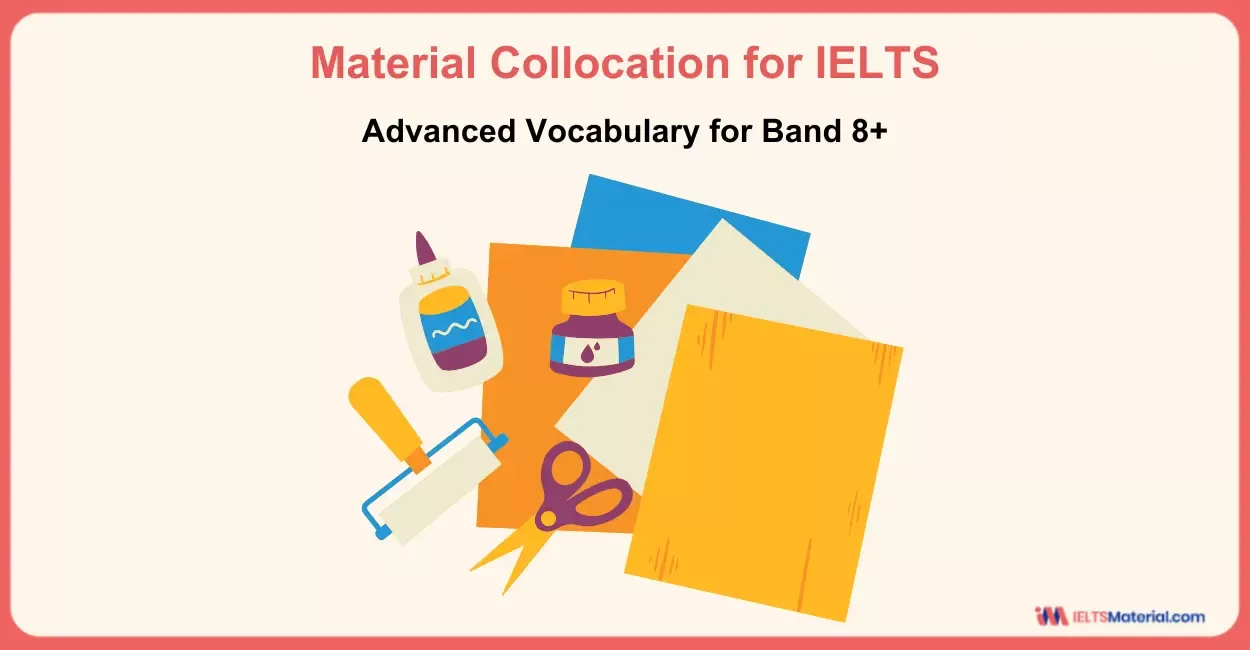
Kasturika Samanta
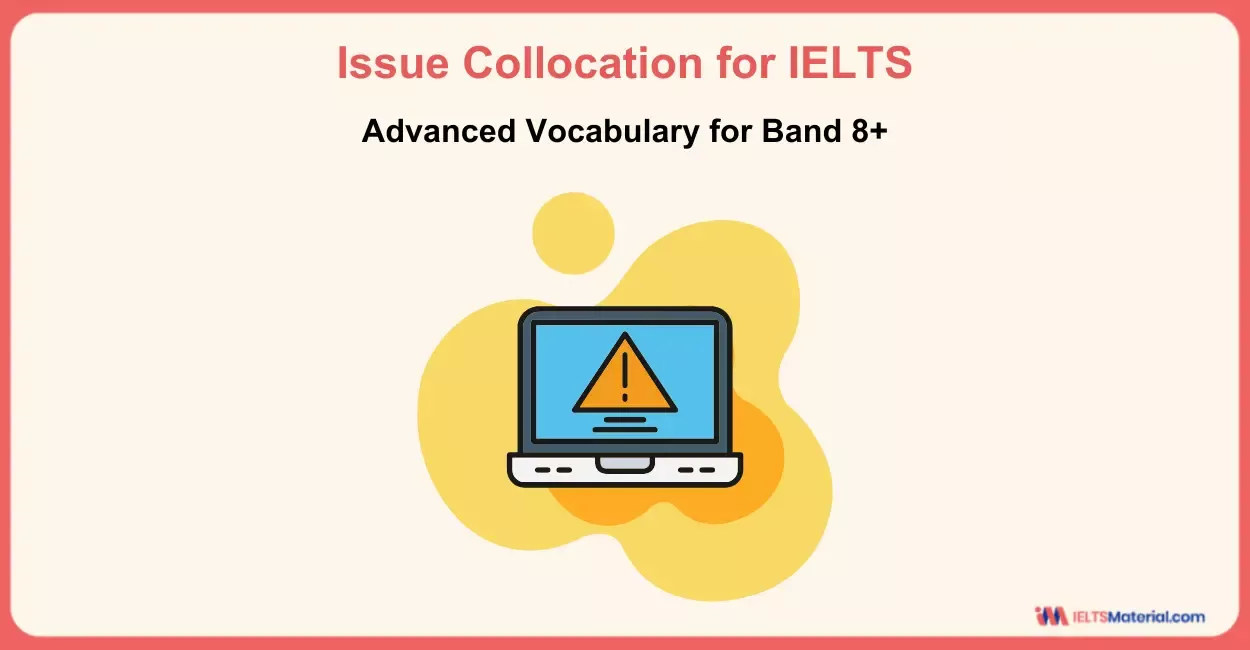
Kasturika Samanta
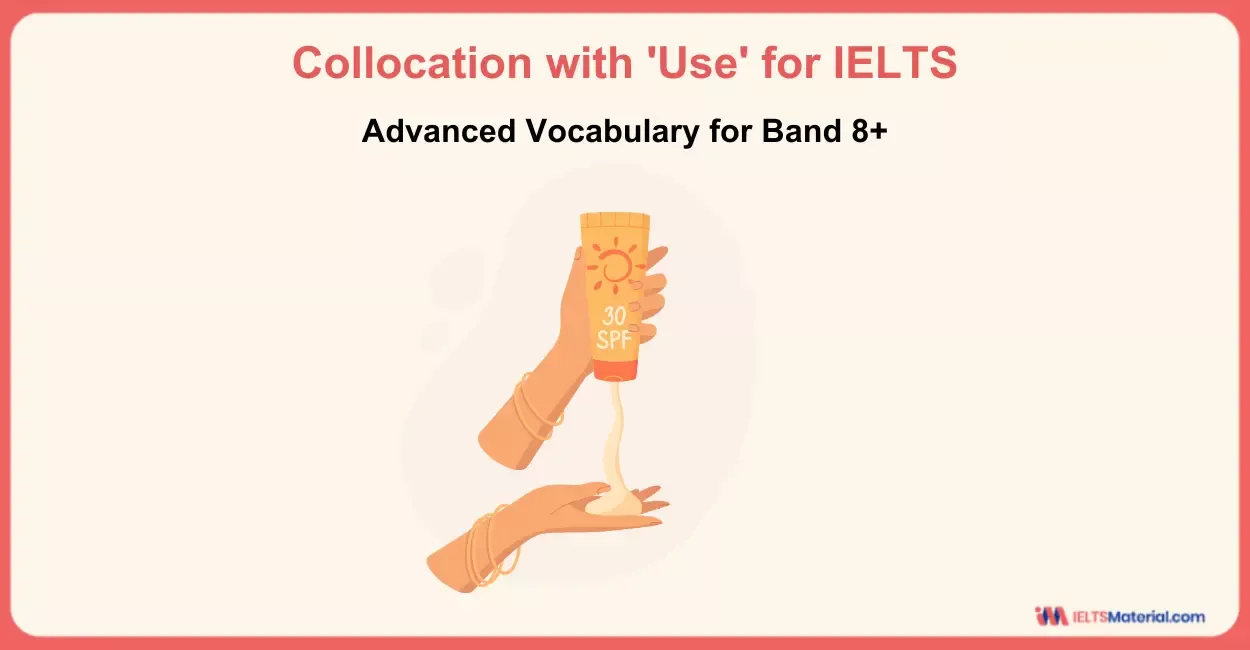
Nehasri Ravishenbagam

